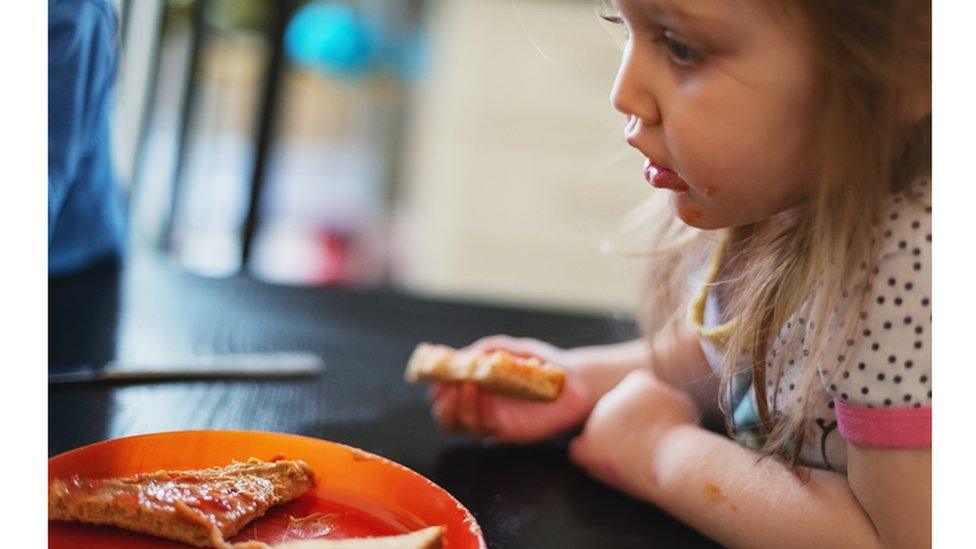Boy among first to try new peanut allergy drug
- Published

Hugo will have to take the drug daily for two to three years
A schoolboy has become one of the first people to try a new drug for peanut allergies, a hospital trust said.
Hugo Codona, 10, from Lichfield, was given a dose of Palforzia at Sandwell Hospital, in West Bromwich.
The treatment is designed to increase tolerance of peanut protein and reduce the risk of severe reactions like anaphylaxis.
It was first approved the NHS last year following research trials.
Peanut allergies currently affect more than six million people in the UK, Europe and America.
The allergy affects approximately 2% (one in 50) of children in the UK and is one of the most common causes of food-related deaths.
Children who are given the treatment can receive the drug in escalating doses to desensitise them to peanut proteins, enabling tolerance to be carefully built over time.
The drug comes in capsules with a measured amount of peanut powder inside and can be mixed with food such as yoghurt to build up a tolerance, Sandwell and West Birmingham NHS Trust said.
Hugo said: "I felt nervous at first, but this is going to help me in the future and give me confidence in dealing with my peanut allergy."
"It will be worth it as it means we can go on family holidays, to restaurants and the cinema without the worry and fear," his mum Lucy added.
'Reduce the risk'
The youngster will have to take the drug daily for two to three years and afterwards a small amount of peanut will need to be eaten every day for the rest of his life.
Aneta Ivanova, paediatric allergy nurse consultant at Sandwell and West Birmingham NHS Trust, which runs Sandwell Hospital, said: "It is not a cure for a peanut allergy, however it does reduce the risk of having a severe allergic reaction like anaphylaxis."
A global trial, external of the drug had previously indicated that nearly 60% of patients who had completed the programme could tolerate 1000mg of peanut protein by the end of the trial.

Follow BBC West Midlands on Facebook, external, Twitter, external and Instagram, external. Send your story ideas to: newsonline.westmidlands@bbc.co.uk, external
Related topics
- Published17 March 2023

- Published2 December 2022

- Published28 June 2022
